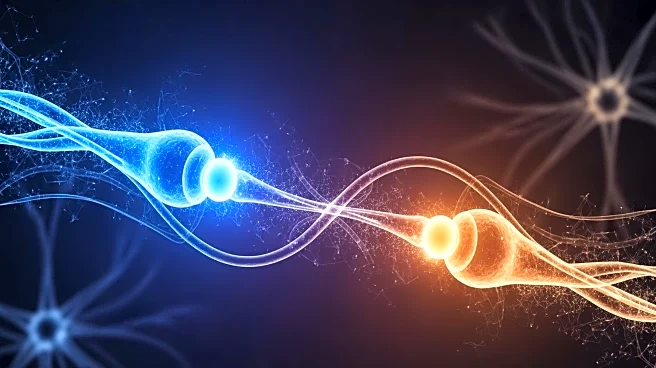What's Happening?
A recent study investigates the disturbances in cortical glutamate and GABA function in schizophrenia, focusing on their origins and consequences. The research aimed to determine whether patients with
established schizophrenia show greater deficits in dACC glutamate compared to those with recent onset, while controlling for antipsychotic medication exposure. The study found greater dACC glutamate deficits in established patients, suggesting a potential inflammatory process. However, no evidence of excess glutamate or glutamine was found in recent onset patients, challenging the glutamate neurotoxicity hypothesis.
Why It's Important?
Understanding the biochemical changes in schizophrenia is crucial for developing targeted treatments. The findings suggest that inflammation may play a role in the progression of schizophrenia, which could lead to new therapeutic approaches focusing on anti-inflammatory treatments. Additionally, the study highlights the complexity of schizophrenia, indicating that glutamate and GABA disturbances may not be the sole contributors to the disease, thus encouraging further research into other potential mechanisms.
What's Next?
Future research may focus on exploring the role of inflammation in schizophrenia more deeply, potentially leading to the development of new anti-inflammatory drugs. Additionally, advancements in imaging and biochemical analysis could provide more insights into the synaptic changes associated with schizophrenia, paving the way for more personalized treatment strategies.
Beyond the Headlines
The study raises questions about the ethical considerations of using antipsychotic medications, given their potential impact on neurotransmitter levels. It also highlights the need for a holistic approach to schizophrenia treatment, considering both biochemical and psychosocial factors.










